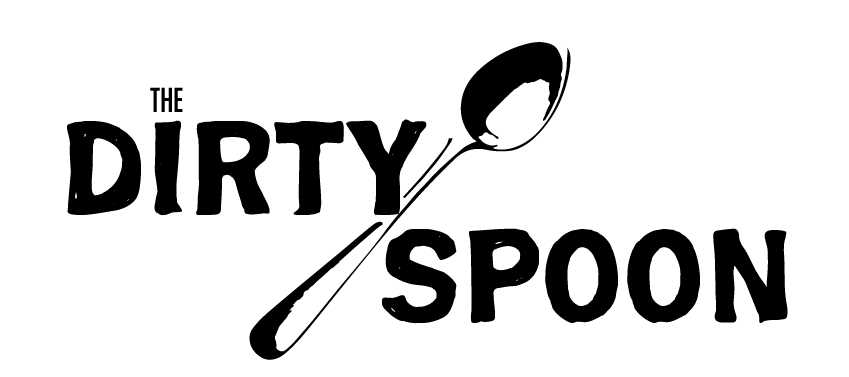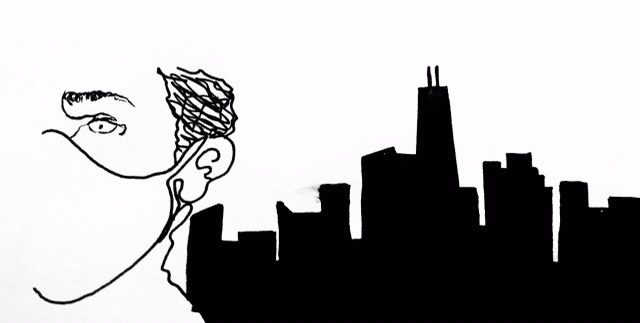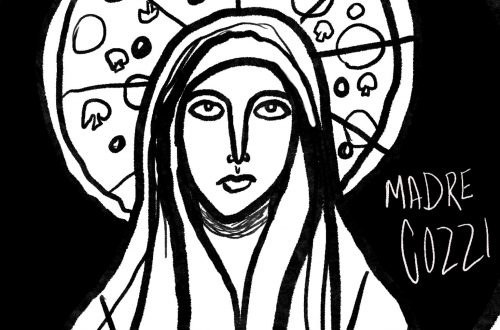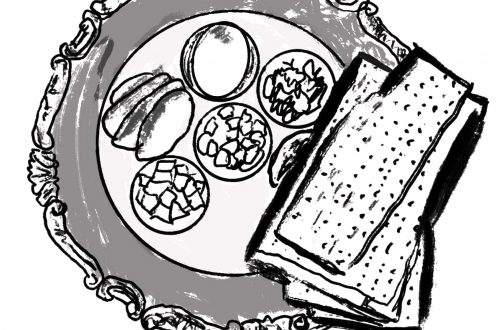by Ted Clyde
Ted’s essay appears in Episode 21 of The Dirty Spoon Radio Hour.
I called Charlie when I left for my daily quarantine walk. He’s been taking Mondays off from the restaurant, some weeks Tuesdays as well, though they’re reserved for time with his wife, a paramedic, whose work has become even more exhausting in recent months. They spend Tuesdays checking in with each other, taking a day to be together, in an otherwise hectic week.
When he answered, he was running around Restaurant Depot and I wasn’t surprised. When he was my chef, he was always working on his day off in some capacity: checking in with his sous or GM, putting out fires via email, sketching out specials or visiting purveyors. I chided him for not taking the day for himself, as I always do. Charlie is a young man, with drive and talent, and doesn’t need to flaunt his work ethic, and I told him so in much plainer words. He informed me that he was only there to pick up some baking supplies for his wife for her birthday. He may have grabbed a couple things for the restaurant as well.
After bullshitting for a minute, he asked what I was up to, and in his short, clipped, semi-Southern accent said, “I’ll be there in 30 minutes Teddy, text you when I’m five or ten out!”
Twenty-five minutes later, we were staring at each other across the intersection at Ashland and Addison, cold hands in pockets, masks on.
It was a bit nippy for the time of year, even in Chicago. The wind was blowing in from the northeast, sweeping over the cold waters of Lake Michigan, winding and funneling its way through the gridded streets, and hitting us head on as we walked east down Addison in intermittent sun.
Charlie and I met 9 years ago after a busy service in one of Chicago’s up-and-coming brew pubs. He was a few years out of culinary school, working the line, though soon to rise through the ranks. I was an interloper. I had been tending bar on and off for years and took a bussing job to get “in” at this new pub. After a year I found myself behind the bar, then left to travel, then got back behind the bar, and eventually worked my way into management. Charlie slogged it out and became sous chef, and then executive chef, and we found ourselves working together as closing managers several nights a week. We’d wrap up things in the office, head down to the dark bar, pour beers for the kitchen guys, and then slide into a couple of bar stools, bourbons in front of us, and feel the adrenaline fade, the night’s service seeping into our veins like some leaden IV drip.
I left the restaurant first. I was spoiled and burnt, unsatisfied with my personal life, and I used the restaurant as an excuse for most of my problems. I moved on to a worse situation, found a better one, and eventually took some time off from the industry all together.
Charlie bought a house an hour and a half outside of the city, and 18 months after I left, decided he couldn’t hack the commute on top of his demanding schedule, and moved on.
He took a gig as a sous at a yet-to-open, farm-to-table, chef-driven, comfort-food-focused restaurant in an affluent suburban downtown area. Having watched the rise of post-Bourdain foodie culture drown my city in middling, buzzword-oriented concepts, I was cynical, and a bit dismissive in the most polite way, but I instinctively trusted Charlie, and I was pulling for him and the chef-owner to make it work. Charlie’s been there almost two years now, through all the peaks and valleys, turnover and tweaks, that go along with opening a new place, and as things started to settle, and profits started to grow, the virus threw a wrench into the Hobart.
As we walked up north Clark street, the wind attacking us from all sides as we crossed the angled intersections, we didn’t address the virus directly. We marveled at the long block of shuttered bars and businesses, commenting on how strange it was to see that section of Clark street devoid of Cubs fans spilling out onto busy sidewalks on an early May day. We reminisced about the many waves of gentrification that have washed over the area around Wrigley Field, remembering fondly, if not accurately, it’s drunken, sloppy, dingy, frat house college bar vibe, that has since been replaced by a more corporate party culture. The three-story mega bars, high end hotel, and big restaurant group’s branded flagship spots drawing a more affluent, if not discerning crowd. We weren’t passing judgement, just making note. Things Change.
We weren’t passing judgement, just making note. Things Change.
I’ve always known Charlie as a frenetic, driven ball of energy, running on pure inertia long after most cooks sink into their bar stools. He was the kind of chef that led by example, willing to jump on the line and teach someone what they should be doing rather than scream at them. He wanted to be in the pass during a busy service, finishing plates, ensuring quality, and keeping tabs on his cooks. He would also be the first one to delegate when the time was right, willing to give you a shot if you thought you could handle it. Several nights he handed me the expediting hat in the middle of a busy Saturday dinner service, and with an encouraging word, would bound out of the kitchen and off to some other task. He knew I could do it, and I never let him down.
As we walked west though, he was hesitant to talk about work. Though he often ran his body down over the course of a long week, I could hear the fatigue in his voice.
Like most places they pivoted quickly to carry out and delivery as dine in operations were shuttered. They did their best to keep staff active for as long as possible, but as stay at home orders were extended, and the reality of the bottom line became clear, made the decision to cut down to a skeleton crew. Charlie and the owner arrived and worked every day, rotating two sets of cooks in and out during the week to shore up service during busy times. Front of house managers would man the door for pick up, as well as provide delivery service. They became more active on social media and decided to keep lunch service running. Anything to keep the ground they’d gained in the community. To stay relevant.
They became more active on social media and decided to keep lunch service running. Anything to keep the ground they’d gained in the community. To stay relevant.
Charlie was tired from Sunday’s service. They had put together a successful carry out package for Easter and decided to offer something similar for Mother’s Day and got slammed. They had fallen behind during the beginning of service, staggering pick-ups as best they could due to last minute orders they tried to accommodate. They didn’t have the luxury of buying the kitchen some time by offering guests a cocktail, or a free appetizer. You can’t do that with curbside pick up. Being professionals, they turned a rocky start into a lucrative, and successful service, but Charlie wasn’t talking about it like we used to. There was no giddy, euphoric sense of accomplishment for grinding through another tough shift. No sly smile of relief, knowing that he barely made it through service. He was subdued. Checking his phone as we walked and made small talk, he was pleased with the feedback they had received from customers, showing a glimpse of satisfaction, but his lack of enthusiasm was telling.
As we walked under the spotty canopy of newly budding trees, talk turned towards the future, to possible collaborative projects, past ideas, and personal goals. It was good to discuss something beyond the current situation. It was good to know we both still carried some hope for the future, if not for the industry, then at least ourselves. But I was worried about how the present reality would affect Charlie as this played out.
It was good to know we both still carried some hope for the future, if not for the industry, then at least ourselves.
In an industry that has always had high rates of burn out, suicide, drug use, and mental health issues, we don’t know yet what the toll will be on the people who tried to keep their places alive so all of the furloughed servers, bartenders, hosts, bussers, runners, and myriad support staff would have something to return to. What happens to the chefs who toil in the kitchen six days a week with no staff to commiserate with, cooking food for an invisible and increasingly fickle public? What happens when chefs walk out, night after night, to an empty dining room, after the same grinding long hours, to no smiling satisfied faces, no bartenders to offer them a drink, no relieved waitstaff tallying the night’s tips? I imagine there’s a lot of chefs wondering what they’re running themselves ragged for. I wonder if Charlie was one of them.
The big boys will survive. The corporate chains and mega restaurant groups have support systems in place and access to capital. A group of industry leaders came together to form the Independent Restaurant Coalition, lobbying Congress on behalf of the “independent” operator. I appreciate the ideology and mission statement, and agree with their assessment of the situation, but with household name celebrity chefs, and some of the country’s largest independent restaurant groups leading the effort, I wonder whose definition of “independent” we’re looking at. Some of the bigger groups are behind the wall of mega bars and flagship operations that line the corner we passed on Clark Street. Some of them immediately furloughed or laid off their entire staff at the onset of stay at home orders so they could take their time to assess the situation and respond accordingly. Many independent operators didn’t have that option. I do believe that the IRC have the small operations in mind as they continue to lobby on their behalf. I think they understand the importance of the neighborhood tavern and grill, or single owner/operator to the ecosystem of their city’s dining scene. I also know that if there’s an empty space to fill, someone will fill it, and I wonder who will be best poised to do that, if and when business comes back.
There’s no question that the industry was heading for a correction. There’s no question that inequality and inequities need to be discussed. There’s no question that the business models restaurants have operated for so many years are inherently unsustainable. If the Thomas Kellers, Gabrielle Hamiltons and David Changs of the world are appealing to Congress, writing op-eds, shuttering long standing institutions and lamenting the future, we should be worried. I worry about these larger themes, and I wonder how the industry as a whole will adjust to the change thrust upon it, but I am also concerned for the people still grinding it out for their livelihoods. The people who still believe in the most recent version of this industry they once took great pleasure from. Those, who right now, have no time to imagine another one.
I worry about these larger themes, and I wonder how the industry as a whole will adjust to the change thrust upon it, but I am also concerned for the people still grinding it out for their livelihoods.
As Charlie and I said our goodbyes, standing several feet apart, he off-handedly mentioned that he would really like to cook a big steak that evening. Something thick and marbled, simply seasoned, seared, and tossed into an oven to finish. I laughed, thinking how often he would randomly interject with an idea for a new flavor combination, or while talking about grabbing a hot dog, pause and lament about how long it had been since he made sausage, like some ex-jock wistfully recalling the glory days. As I headed back to my car, I thought about how much Charlie loved to cook.
I sincerely hoped that would be enough to carry him through.
Artwork by Corinne Pease.
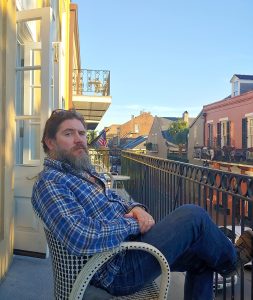
About Ted Clyde
Ted Clyde is a Chicago based freelance writer and musician drawing inspiration and sharing tales from his piece of the road.
Check out teddyclyde.com for more info.
